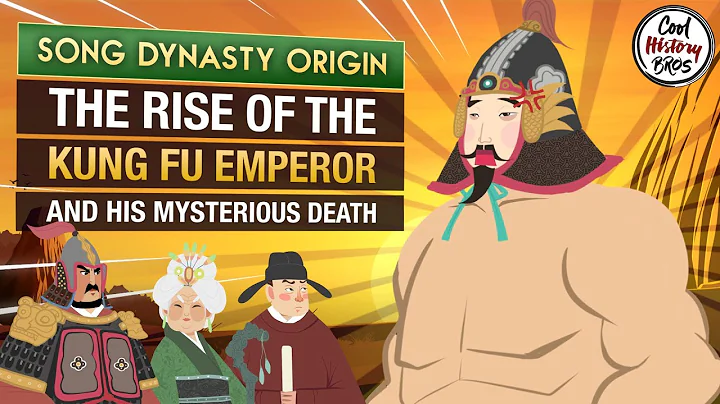In 959 AD, Zhou Shizong Chai Rong died, and Zhou Gongdi Chai Zongxun who came to the throne was only seven years old.

Zhao Kuangyin was appointed as the inspector in front of the palace (the highest officer of the Imperial Guard), and he also served as the military envoy to the German army in Songzhou.
Later Zhou Dynasty, on the second day of the first spring of the seventh year of Xiande (960), Zhenzhou (now Zhengding, Hebei Province) and Dingzhou (now Dingzhou, Hebei Province) were reported as Northern Han Dynasty and Liao Kingdom The army united and went south to attack the Hou Zhou Dynasty. The momentum was huge and they asked for troops to be sent for assistance.
Empress Dowager Zhou Fu and prime ministers Fan Zhi, Wang Pu and other ruling ministers did not distinguish between true and false, and hurriedly ordered Chanzhou Jiedushi Murong Yanzhao to lead his troops to resist. He also ordered Zhao Kuangyin to lead his troops north to defend against the enemy.
On the third day of the lunar month (February 3), Zhao Kuangyin led the army out of Bianliang . In the evening, the army marched to Chenqiaoyi (today's Chenqiao Town southeast of Fengqiu, Henan). Zhao Kuangyin was planned by his younger brother Zhao Guangyi, as well as Zhao Pu, Shi Shouxin, Wang Shenqi and others. , encouraged the soldiers to launch a mutiny, ordered him to wear a yellow robe, rebelled against the Later Zhou Dynasty, and supported Zhao Kuangyin as emperor.
After that, Zhao Kuangyin stopped going north to fight, and directly led his troops back to Kaifeng.
Zhao Kuangyin Chen Qiao mutinied and returned to Beijing. Only the capital inspection commander Han Tong resisted hastily, but he was immediately killed by Wang Yansheng.
Then Prime Minister Fan Zhi led Wang Pu, Wei Renpu and others to question Zhao Kuangyin. In front of the tent Luo Yanyu drew his sword and shouted loudly: "I have no master, today I will win the emperor!".
Fan Zhi's face was earthy and he immediately bowed down, so Zhao Kuangyin personally helped him up and treated him with great courtesy.
There was little resistance in the palace. The mutiny succeeded easily.
On the fourth day of the Lunar New Year, Emperor Gong of the Later Zhou Dynasty ascended the throne, and Zhao Kuangyin took over the throne.

After Zhao Kuangyin came to the throne, he changed the name of the country to Song Dynasty on the fifth day of the lunar month, and changed the seventh year of Xiande to the first year of Jianlong. Kaifeng was established as the capital. Shi Shouxin, Gao Huaide, Zhang Lingduo, Wang Shenqi, Zhang Guanghan, and Zhao Yanhui were all awarded Jiedu. The envoy position was known as the "Chenqiao Mutiny" in history.
So what was the fate of Chai Zongxun, the deposed Emperor Gong of the Later Zhou Dynasty?
He was conferred the title of King Zheng by Zhao Kuangyin, and soon moved to Fangzhou (today's Fang County, Hubei Province). Died 13 years later. His posthumous name was "Gong" and his mausoleum was named "Shunling". He was known as Emperor Gong of the Later Zhou Dynasty in history.
And Zhao Kuangyin did not treat the descendants of Emperor Gong of the Later Zhou Dynasty badly. His descendants were renamed Zheng Guogong , and they were hereditary.





















